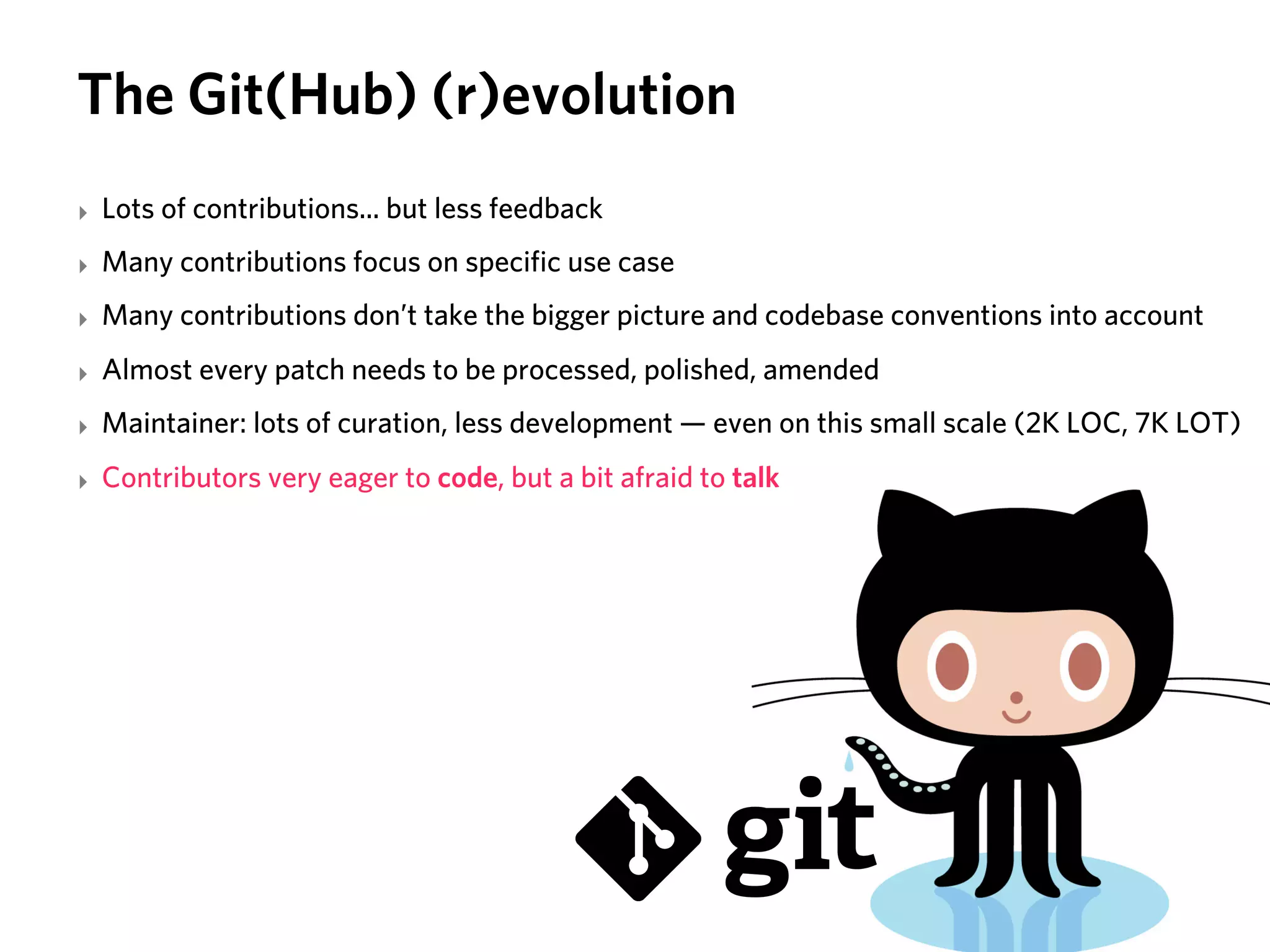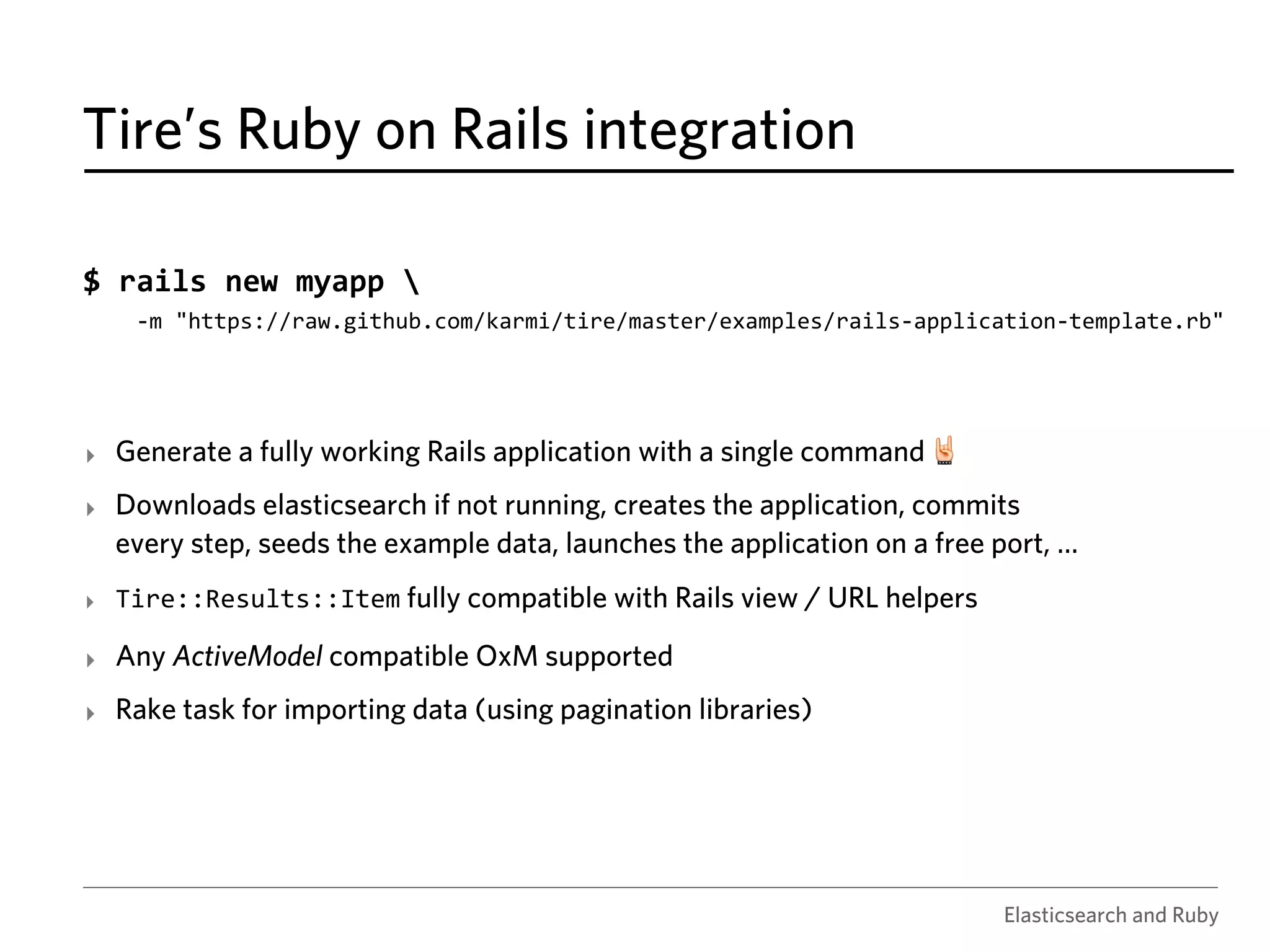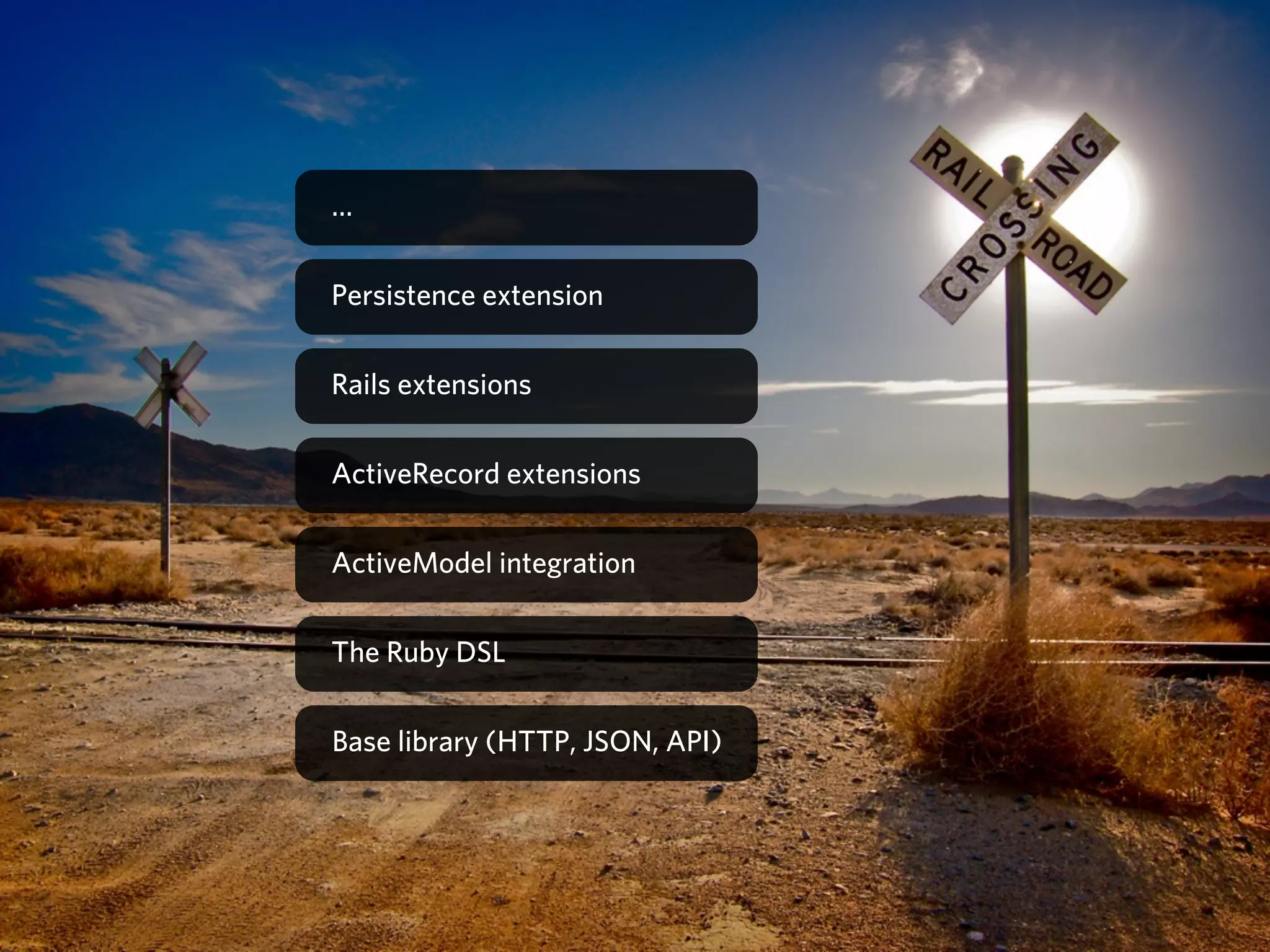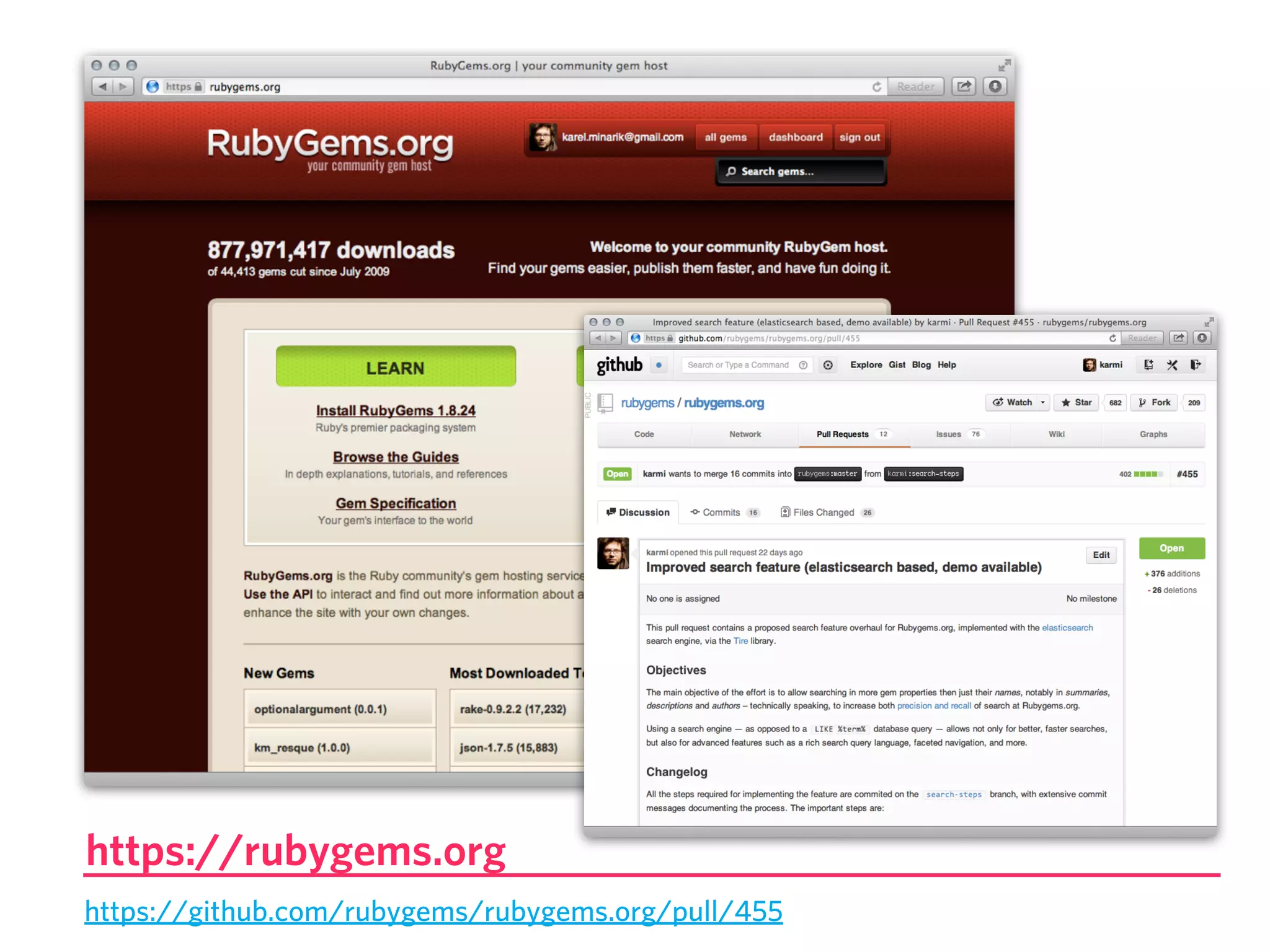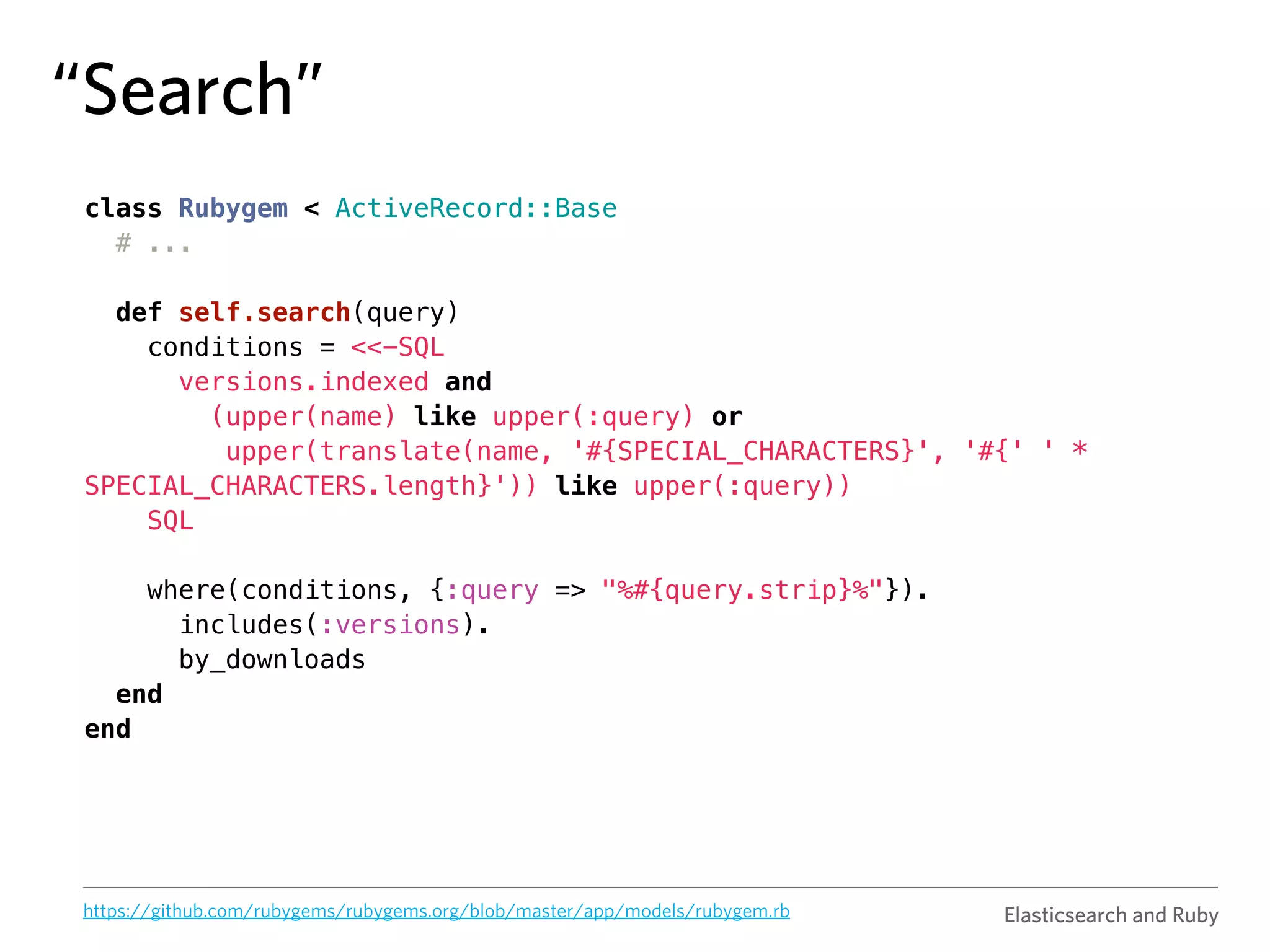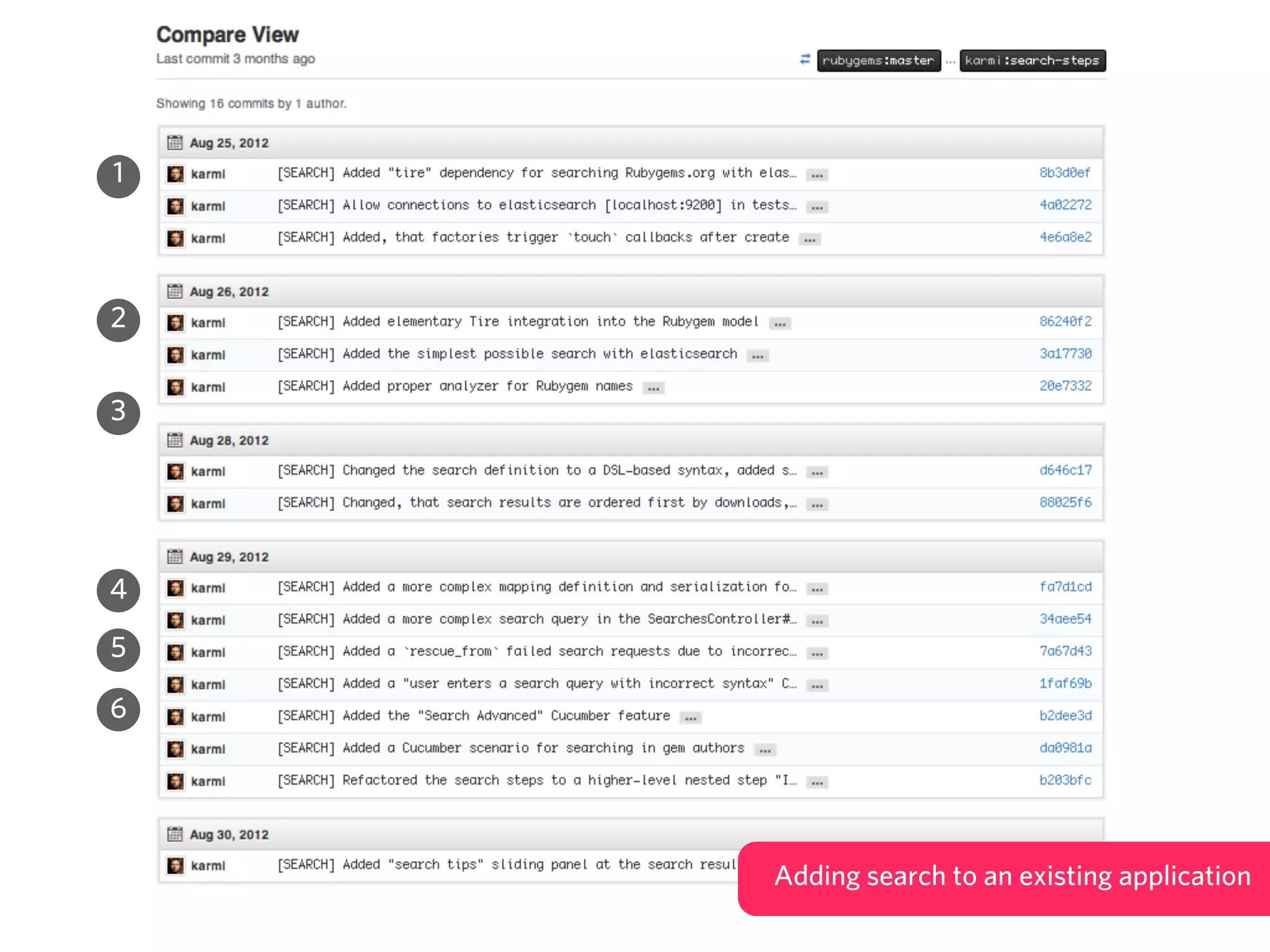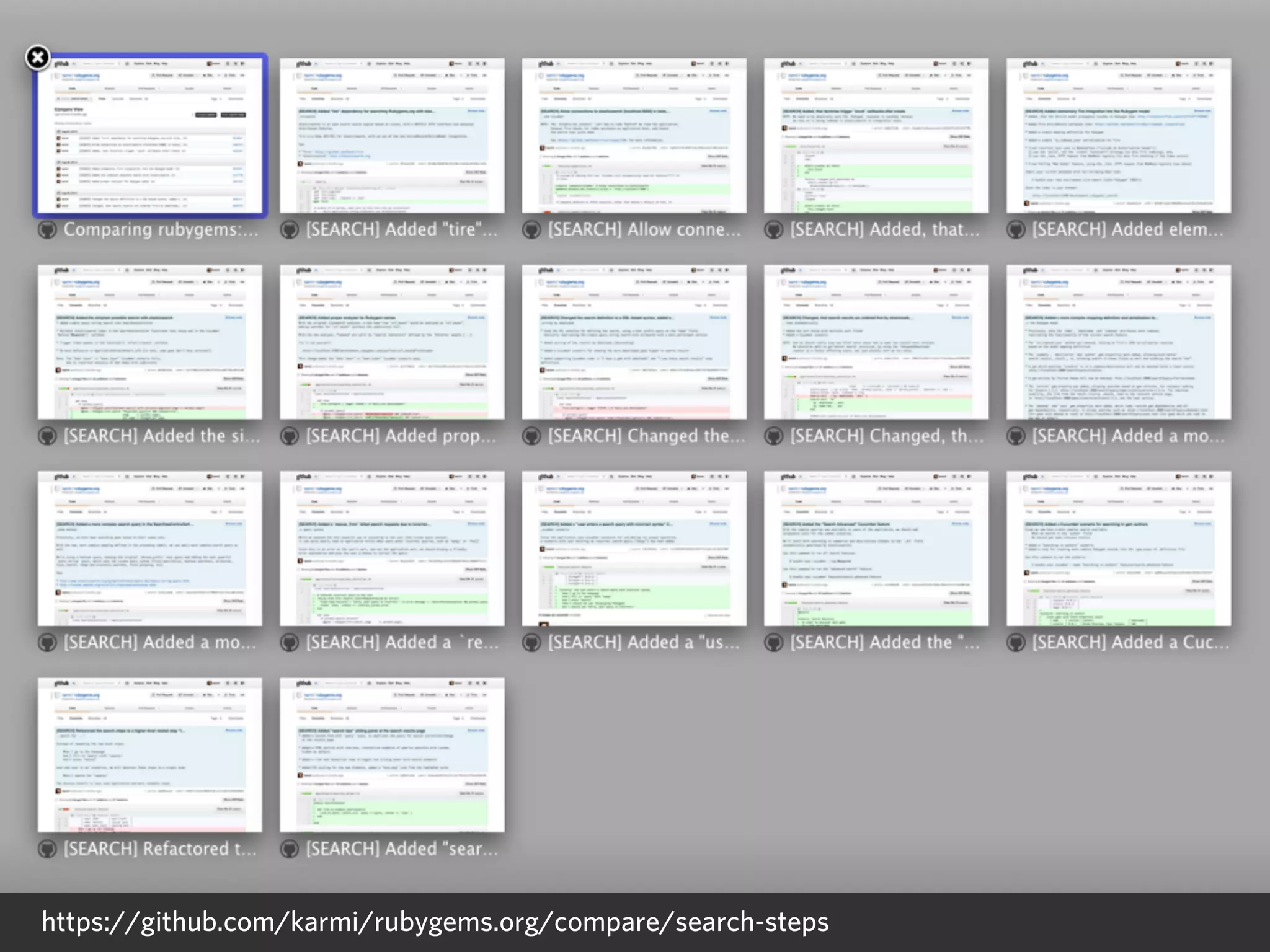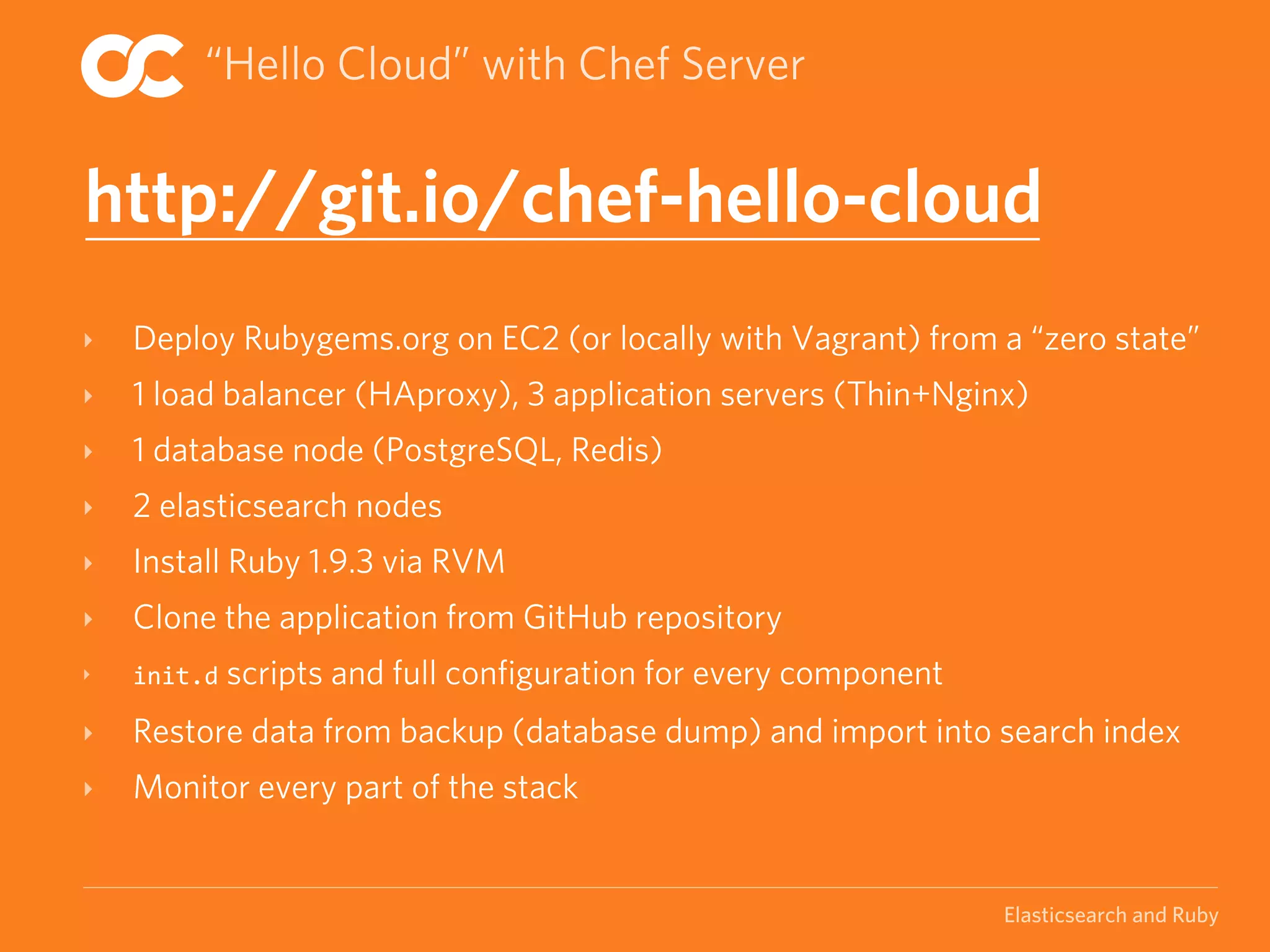Elasticsearch and Ruby document summarized in 3 sentences: Elasticsearch is an open source search and analytics engine built on Apache Lucene that provides scalable searching and analyzing of big data. It is a great fit for dynamic languages like Ruby and web-oriented workflows due to its REST API and JSON DSL. The document provides examples of using the Ruby library Tire to interface with Elasticsearch to perform searches and facets from Ruby applications and Rails frameworks.
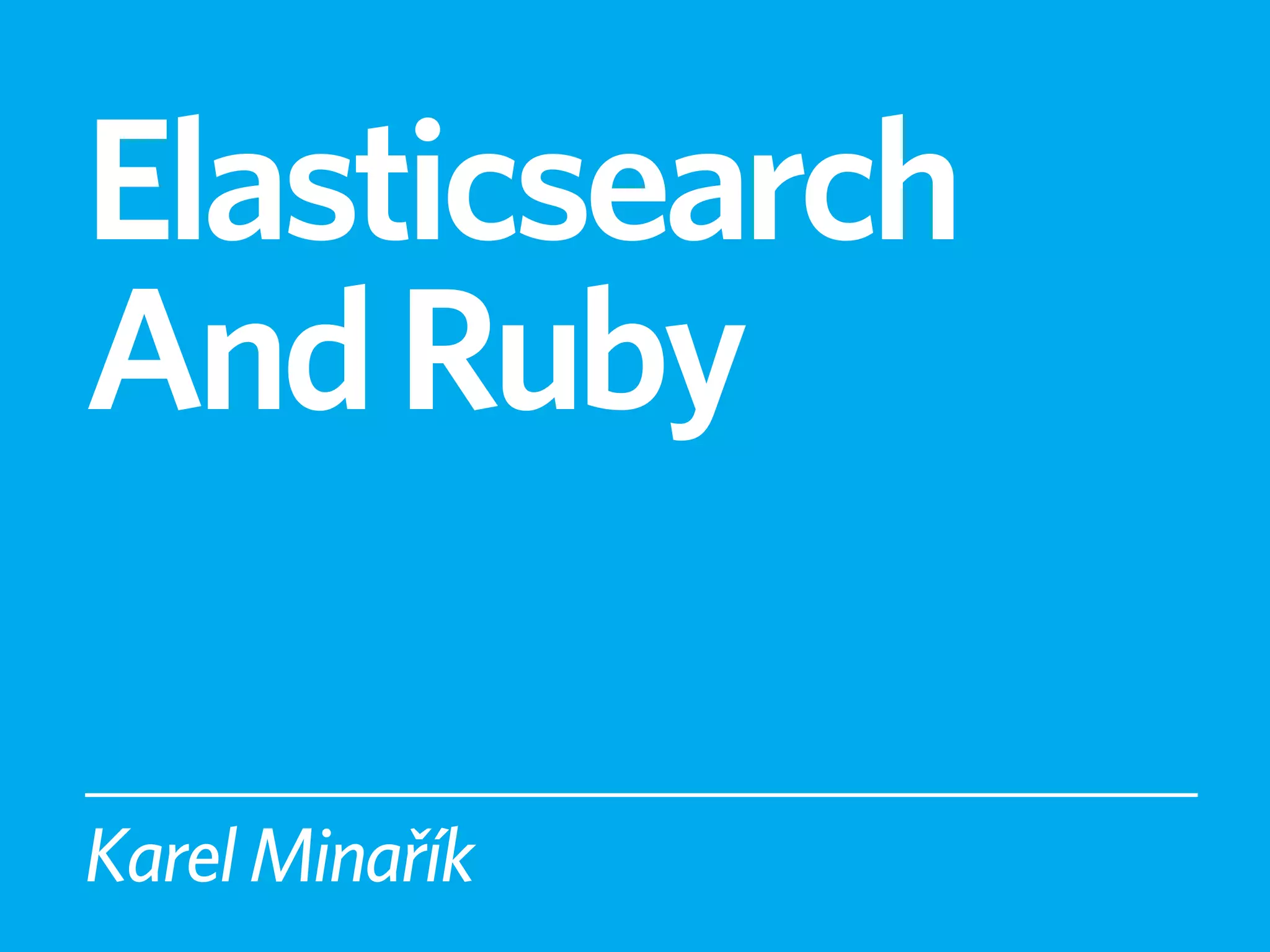

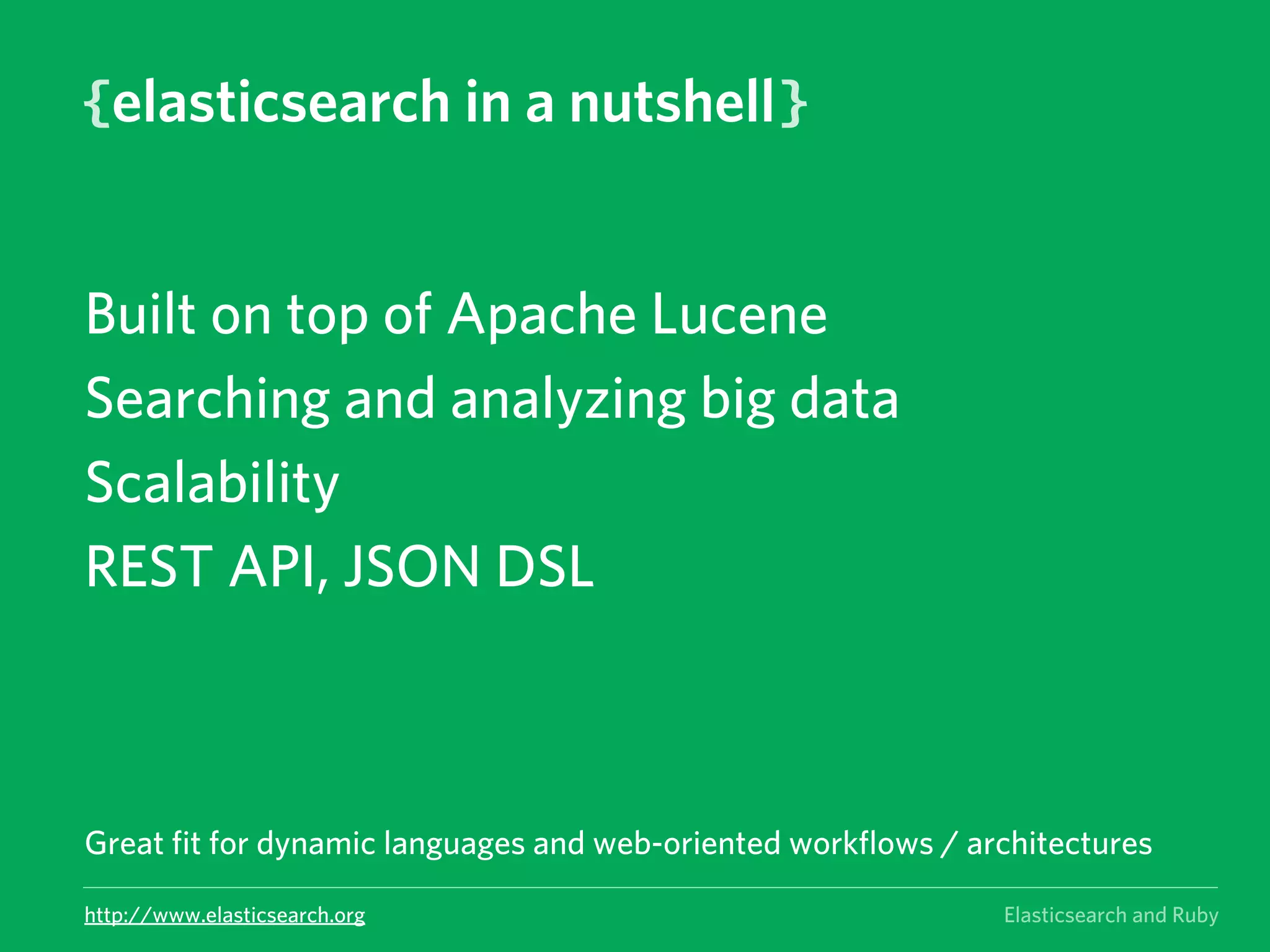
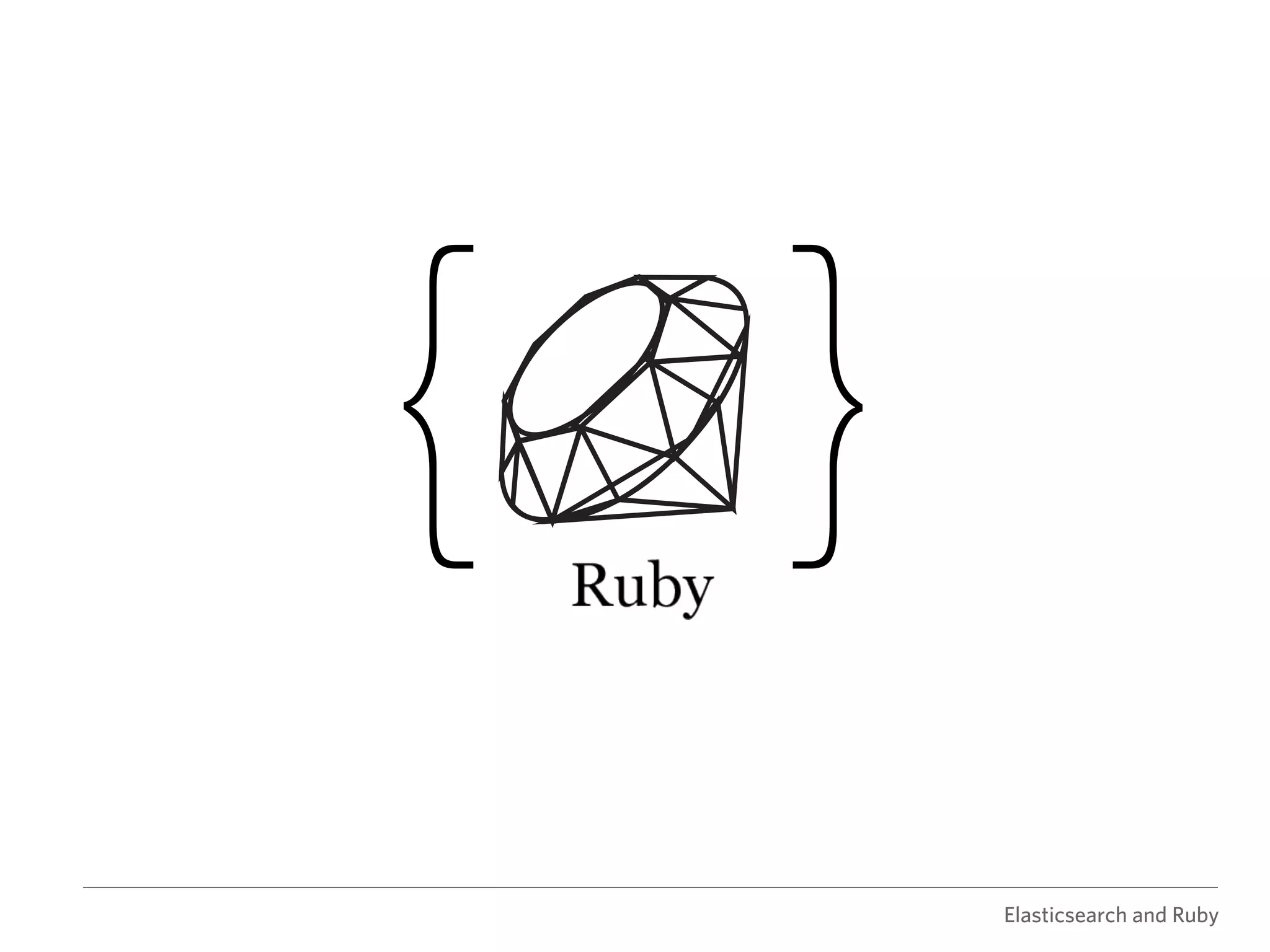
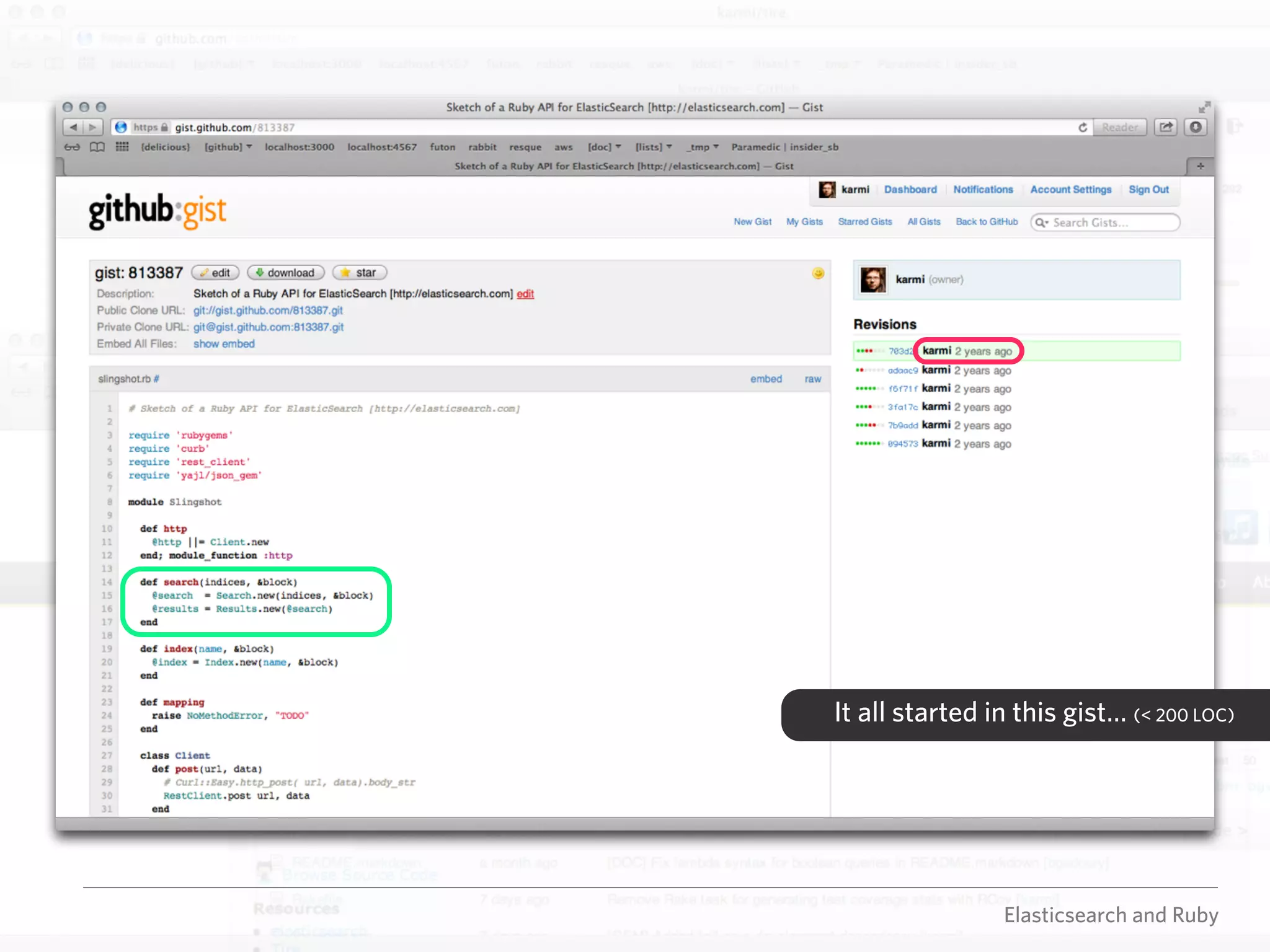
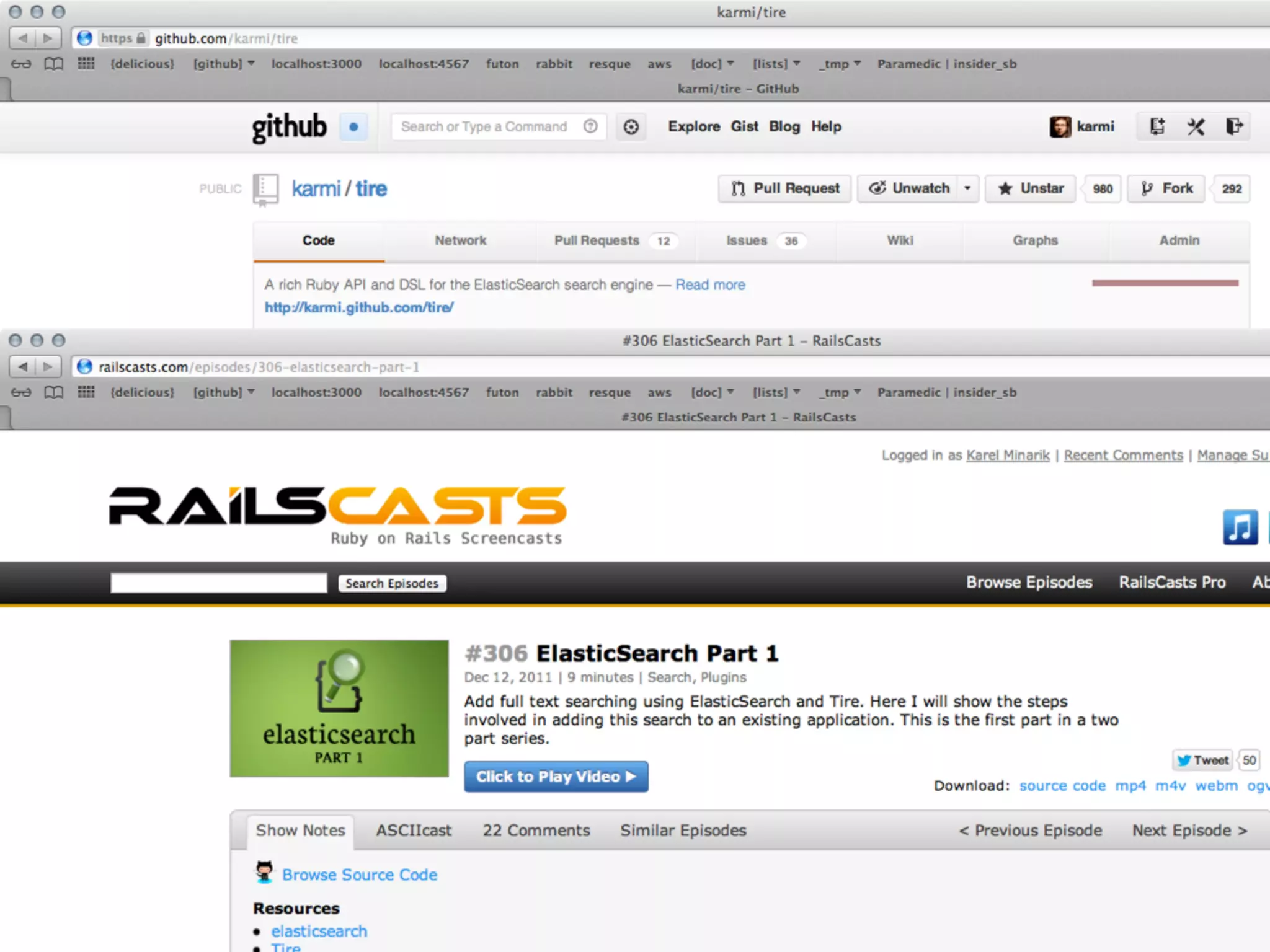
![Example class Results include Enumerable attr_reader :query, :curl, :time, :total, :results, :facets def initialize(search) response = JSON.parse( Slingshot.http.post("http://localhost:9200/#{search.indices}/_search", search.to_json) ) @query = search.to_json @curl = %Q|curl -X POST "http://localhost:9200/#{search.indices}/_search?pretty" -d '#{@query}'| @time = response['took'] @total = response['hits']['total'] @results = response['hits']['hits'] @facets = response['facets'] end def each(&block) @results.each(&block) end end Elasticsearch plays nicely with Ruby… Elasticsearch and Ruby](https://image.slidesharecdn.com/elasticsearchandruby-karelminarik-rupy2012-121118065224-phpapp01/75/Elasticsearch-And-Ruby-RuPy2012-7-2048.jpg)
![elasticsearch’s Query DSL curl -‐X POST "http://localhost:9200/articles/_search?pretty=true" -‐d ' { "query" : { "filtered" : { "filter" : { "range" : { "date" : { "from" : "2012-‐01-‐01", "to" : "2012-‐12-‐31" } } }, "query" : { "bool" : { "must" : { "terms" : { "tags" : [ "ruby", "python" ] } }, "must" : { "match" : { "title" : { "query" : "conference", "boost" : 10.0 } } } } } } } }](https://image.slidesharecdn.com/elasticsearchandruby-karelminarik-rupy2012-121118065224-phpapp01/75/Elasticsearch-And-Ruby-RuPy2012-8-2048.jpg)
![Example Tire.search('articles') do query do boolean do must { terms :tags, ['ruby', 'python'] } must { string 'published_on:[2011-01-01 TO 2011-01-02]' } end end end Elasticsearch and Ruby](https://image.slidesharecdn.com/elasticsearchandruby-karelminarik-rupy2012-121118065224-phpapp01/75/Elasticsearch-And-Ruby-RuPy2012-9-2048.jpg)
![Example tags_query = lambda do |boolean| boolean.must { terms :tags, ['ruby', 'python'] } end published_on_query = lambda do |boolean| boolean.must { string 'published_on:[2011-01-01 TO 2011-01-02]' } end Tire.search('articles') do query { boolean &tags_query } end Tire.search('articles') do query do boolean &tags_query boolean &published_on_query end end Elasticsearch and Ruby](https://image.slidesharecdn.com/elasticsearchandruby-karelminarik-rupy2012-121118065224-phpapp01/75/Elasticsearch-And-Ruby-RuPy2012-10-2048.jpg)
![Example search = Tire.search 'articles' do query do string 'title:T*' end filter :terms, tags: ['ruby'] facet 'tags', terms: tags sort { by :title, 'desc' } end search = Tire::Search::Search.new('articles') search.query { string('title:T*') } search.filter :terms, :tags => ['ruby'] search.facet('tags') { terms :tags } search.sort { by :title, 'desc' } Elasticsearch and Ruby](https://image.slidesharecdn.com/elasticsearchandruby-karelminarik-rupy2012-121118065224-phpapp01/75/Elasticsearch-And-Ruby-RuPy2012-11-2048.jpg)
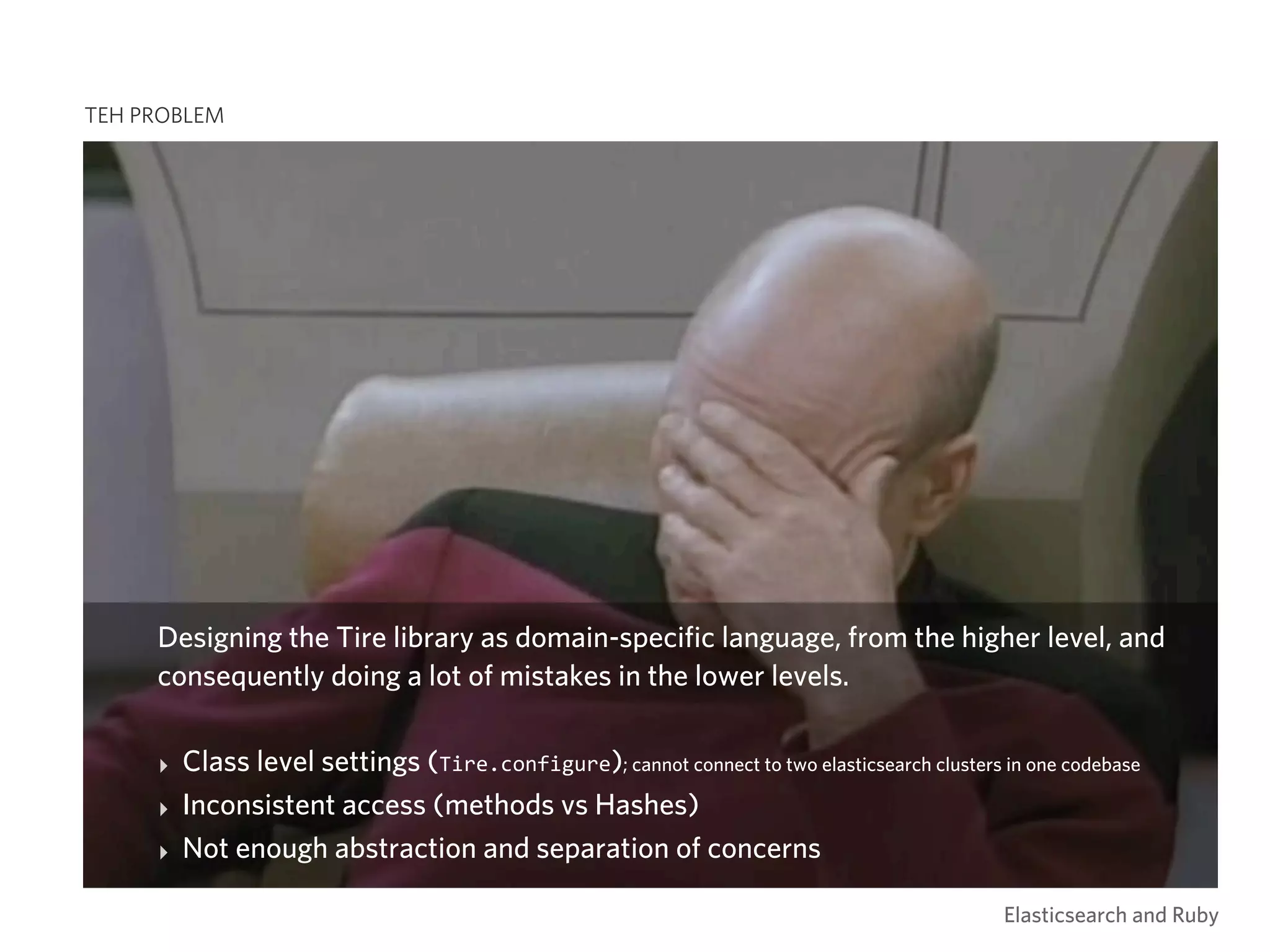
![”Blocks with arguments” (alternative DSL syntax) Tire.search do query do text :name, params[:q] end end Tire.search do |search| search.query do |query| query.text :name, params[:q] end end Elasticsearch and Ruby](https://image.slidesharecdn.com/elasticsearchandruby-karelminarik-rupy2012-121118065224-phpapp01/75/Elasticsearch-And-Ruby-RuPy2012-13-2048.jpg)
